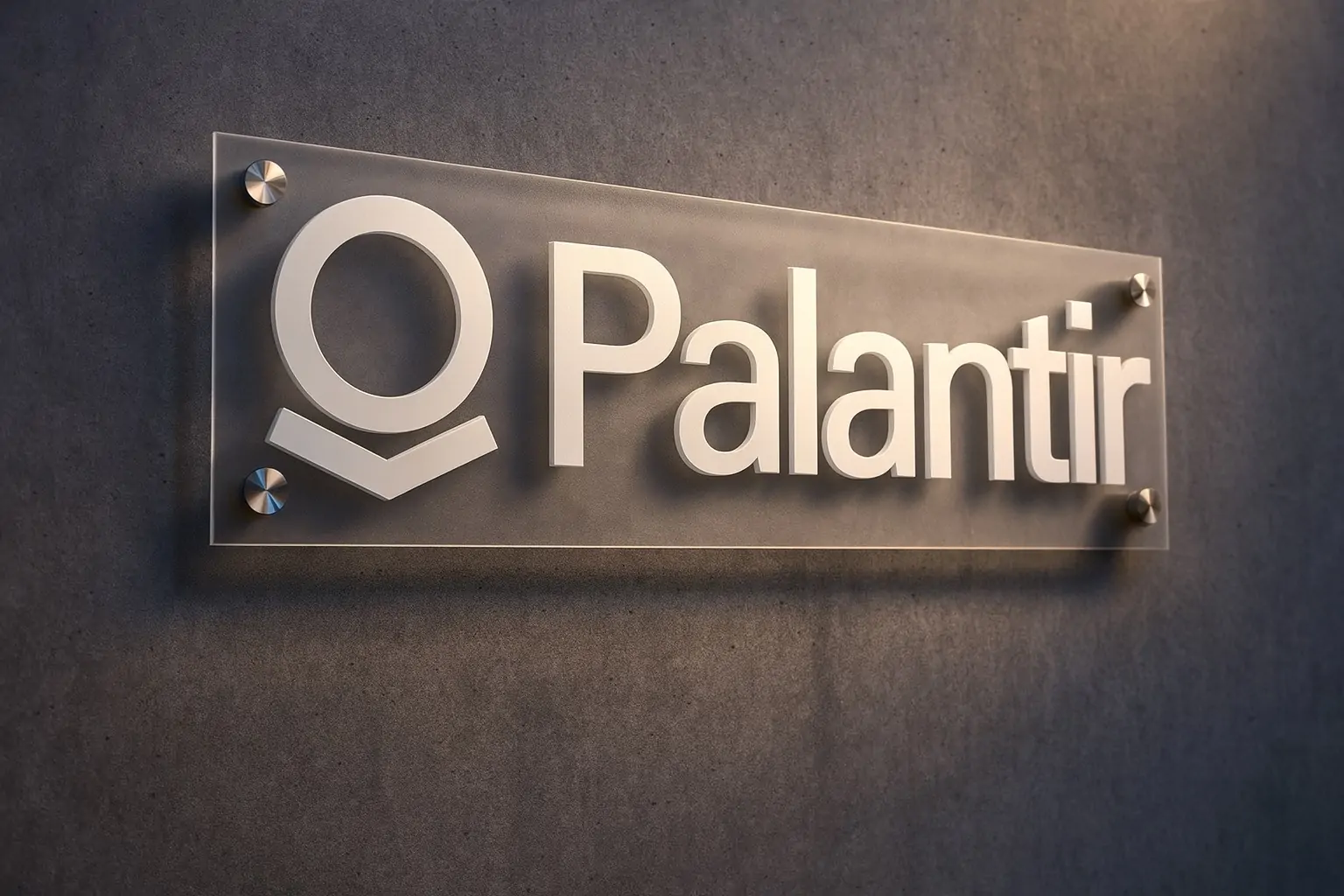- Current Price: PLTR trades around $179.63 on Oct 16, 2025 (down about –0.08% on the day). The stock has surged ~300%+ in 2025, roughly tripling its value from Jan–Oct.
- Big Deals: Palantir has landed blockbuster contracts fueling the rally – a $10 billion U.S. Army IDIQ deal over 10 years, a new UK defence partnership (up to £1.5 billion investment), and a “game-changing” integration deal with Boeing Defense. Just Oct 16, Palantir announced an AI data partnership with Snowflake to link Snowflake’s AI Data Cloud with Palantir’s platforms; it also recently signed a healthcare AI deal with OneMedNet.
- Financials: Q2 2025 was a record quarter: revenue hit about $1.03 billion (+48% YoY) with a GAAP profit of $327 million. Management raised 2025 revenue guidance to ~$4.14–$4.15 billionts2.tech. (Palantir turned profitable in 2023 and has strong free cash flow.)
- Analyst Ratings: Wall Street is divided. Piper Sandler (Oct 16) lifted its 12-month price target to $201 (maintaining an Overweight/buy rating)marketbeat.com. Other analysts are more cautious: e.g. UBS and Cantor Fitzgerald have $165 and $155 targets (Neutral). The consensus rating is “Hold,” with price targets ranging widely (roughly $100–$215, median ~$155–$160).
Stock Price and 2025 Performance
In dollar terms, PLTR’s market cap is about $426 billion – comparable to or exceeding legacy defense primes (Lockheed, RTX, etc.). However, analysts note the valuation is extremely high: Palantir’s forward price/sales is over 100× and forward P/E above 200×, far above most peersreuters.com. (For context, Reuters notes Palantir is trading at “one of the most expensive” multiples in market historyreuters.com.) Investors remain bullish for now, expecting continued growth, but such lofty metrics also raise bubble concerns.
Major Contracts and Partnerships Drive the Rally
Palantir’s 2025 surge is underpinned by a steady stream of big deals. In July, the U.S. Army consolidated dozens of projects into a new indefinite-delivery contract worth up to $10 billion over 10 years. In September, the UK Ministry of Defence announced a strategic AI/data partnership with Palantir, promising up to £1.5 billion of investment in UK defence tech and making London Palantir’s European defense HQ. These government deals signal deepening adoption of Palantir’s software in military programs.
On the commercial side, Boeing’s Defense division disclosed on Sept 23 that it will integrate Palantir’s AI-driven data platform across its manufacturing and aerospace programs. Boeing’s defense chief called this “game-changing,” noting Palantir’s system enables decisions “not in weeks, but in days and hours”. Palantir’s stock jumped ~2% on the Boeing news. In energy, Palantir also signed on to develop a $100 million AI “nuclear operating system” for a power project.
Just this week (Oct 16), Palantir and Snowflake announced a new AI/data partnership: Snowflake’s AI Data Cloud will integrate with Palantir’s Foundry and Artificial Intelligence Platform (AIP), streamlining enterprise AI pipelines. News reports note Snowflake’s stock jumped on the announcement. Separately, in early October healthcare data firm OneMedNet chose Palantir’s AIP to power its near-real-time clinical data network – a multi-year project tapping into the large ($868B by 2030) AI healthcare market. In short, Palantir is not just winning defense contracts but expanding into AI partnerships in healthcare, finance, and industry.
Each announced deal has helped underpin the stock’s rally. As TS2 analysts summarized: the “steady drumbeat of contract announcements” – from Army to Boeing to healthcare – shows Palantir’s tech is in high demand across sectors. However, the company’s close ties to defense mean news of any hiccups (such as the early-Oct leaked Army memo) can trigger volatility.
Earnings Beat and Financial Momentum
Palantir’s financial performance has finally matched the stock’s hype in 2025. In Q2 (reported Aug 4, 2025), revenue reached $1.03 billion, up 48% year-over-year – the first time quarterly sales topped $1B. GAAP net income was about $327 million (up 144% YoY), driven by expanding margins. The blowout results led management to raise 2025 revenue guidance to about $4.14–$4.15 billionts2.tech (well above prior guidance and consensus). US government revenue (led by defense contracts) jumped sharply, and even commercial sales (healthcare, energy, etc.) are accelerating.
These strong fundamentals have bolstered the bull case. Palantir now qualifies under the “Rule of 40” (growth + profit) and generates significant free cash flowts2.tech. As CEO Alex Karp noted on the Q2 call, federal spending and tech hiring remain strong and the company is “very, very bullish on America”ts2.tech. Investors will keep a close eye on the upcoming Q3 report (likely early Nov) to see if the momentum holds. Given how expectations are high, any meaningful slowdown in growth could pressure the stock – a risk analysts acknowledge.
Analyst Opinions: Bullish vs. Bearish Views
Analysts are split on what comes next. Bulls highlight Palantir’s unique position as an “AI arms dealer” to governments and big companies. Wedbush’s Dan Ives famously likened the AI market to an “all-night party that’s only at 10:00 p.m.” – implying many more growth years ahead. Piper Sandler, after recent results, lifted its 12-month price target to $201 (11.9% above the then-close) and kept an Overweight ratingmarketbeat.com. Bank of America and Wedbush have bull-case targets around $215–$200 based on continued AI adoption.
On the other hand, skeptics question the stock’s stratospheric valuation. Short-seller Andrew Left (Citron) has called Palantir’s price “absurd,” arguing true fair value is around $65–$70. Even some neutral analysts caution the rally may be extended: for instance, UBS and Cantor Fitzgerald (Aug 5 reports) have neutral ratings with $165 and $155 targets. The overall Wall Street consensus remains “Hold,” with the median target roughly in the mid-$150s – significantly below current prices. This gap underscores disagreement on whether Palantir can continue delivering blockbuster growth.
Short-term, the stock may pause or pull back if technical factors or profit-taking kick in (it’s quite overbought by many measures). But in the longer term, many analysts still project strong growth. As one market observer put it, Palantir is powering growth “on both sides (government and commercial)”, and its markets (defense, AI analytics) could expand for years. If Palantir hits its stride in AI and data markets, some see it becoming one of the world’s most valuable tech companies – but that depends on execution.
Looking at technicals, PLTR remains in a powerful uptrend but volatile swings are common. The 50-day moving average (around $172–$175) has acted as support in recent dips. Investors note strong trading volume and retail interest: for example, Reuters noted retail investors poured ~$1.2 billion into Palantir in July alone. This “meme stock” element adds another layer of risk and excitement – trending chat-room buzz can amplify moves in either direction.
Market Trends and Outlook
Palantir’s stock is largely riding the broader AI/tech boom. Wall Street has been bullish on AI all year, and as one strategist noted, “AI continues to come up with new alliances, good earnings releases… and there’s no reason to change… outlook of technology”. Indeed, on Oct 16 the Nasdaq Composite gained almost 1% on AI-fueled earnings from the likes of Nvidia and TSMC. Palantir’s business – defense tech and data analytics powered by AI – sits at the heart of investor optimism.
Other market factors play in too. The Fed now looks poised to cut rates in October, which is generally positive for high-growth stocks. Geopolitical and trade tensions (and even the draw of safe havens like gold) have been under the surface, but strong corporate earnings have helped US indices hold near record highs. On the flip side, a recent Bank of America survey found many investors worry an AI bubble may be forming – Palantir’s steep valuation embodies that fear.
The Bottom Line: Palantir’s blistering 2025 run has made it one of the market’s hottest stocks. Its $179–$180 price today reflects both extraordinary optimism and frothy valuation. With powerful government and enterprise demand behind it, the company’s fundamentals are the best they’ve ever been, and many analysts remain upbeat. However, the near-term outlook is tricky: the stock is due for a rest or consolidation after such a parabolic move, and any hiccup in the upcoming earnings or a broader tech sell-off could trigger profit-taking. Longer term, much depends on execution in AI initiatives and whether Palantir can sustain double-digit growth. For now, investors and Wall Street will be watching every contract announcement and data report closely before jumping to “buy,” “hold,” or “sell” on this AI-fueled tech darlingmarketbeat.com.
Sources: News and data compiled from Reuters, BusinessWire press releases, tech-finance sites, and market analystsmarketbeat.comreuters.com. Each source linked above provides further details on the points summarized.









